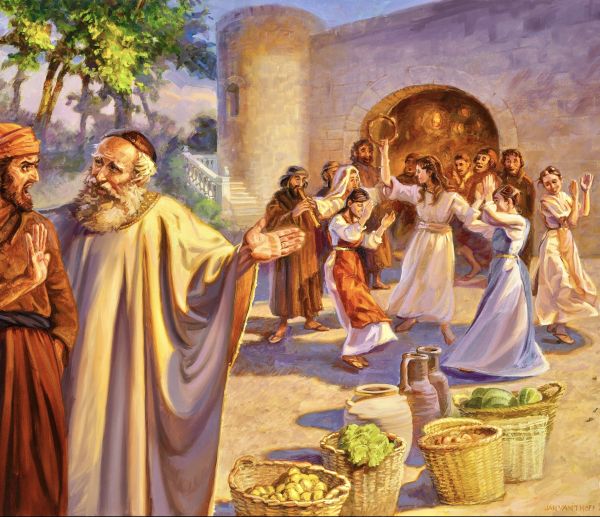In his young life, Francis had encountered the paternal and maternal compassion of the Lord.
After a life spent in cheerful and somewhat dissolute brigades, he was thunderstruck by the Father of Mercies or, as he called him, the Great Helmsman.
Touched by Grace, after his evident change of mentality, before the Crucifix of San Damiano his vocation-mission was revealed to him.
He renounced everything, even his earthly father, to be free to go where the Father in heaven sent him.
The waste of his youthful years translated him into boundless generosity towards lepers and the poor.
The Blessing Embrace of the Almighty had imprinted him with a more solid and precious human and spiritual character.
All his life he wept for his sins, thinking of the Passion of Jesus Christ, who died and rose again for all his lost children.
In the Sources ('Vita seconda' by his biographer Celano) we find a moving passage:
"Once he heard that a sick friar had a desire to eat some grapes. He accompanied him to a vineyard and, sitting down under a vine, to infuse him with courage, he himself began to eat first' (FF 762).
Mercy for the misfortunes of others is the Franciscan foundation of the spiritual journey.
And again:
"He used to say that it is the duty of the superior, a father and not a tyrant, to prevent the occasion of guilt and not to allow those to fall who would then find it difficult to get up again, once they have fallen.
Oh, how worthy of compassion is our foolishness!
Not only do we not lift or support the weak, but we sometimes push them to fall.
We judge it of no importance to take away from the Supreme Shepherd a sheep, for whom on the Cross he uttered a loud cry with tears.
But quite differently didst thou, holy father, prefer to amend the errant and not to lose them!
[...] the oil and the wine, the rod and the staff, the zeal and the indulgence, the burning and the anointing, the prison and the womb, everything has its time.
All these things require the God of vengeance and the Father of mercies: but he prefers mercy to sacrifice' (FF 763).
Clare herself, a loving mother, had received a generous heart full of compassion, especially towards her needy sisters.
The Sources, through the Rule, attest that as the leader of the community, the First Plant of Francis did not allow herself to be imprisoned by the law, but unmistakable Charity reigned over all.
We read in fact:
"[The abbess] console the afflicted. May she still be the last refuge of the afflicted so that, should the remedies of health be lacking in her, the disease of despair may not prevail in the sick" (FF 2778).
Francis and Clare, transformed by the Father's mercy, treasured the gift they had received and poured it out freely to all creatures. Never caged by the immovability of the codes, they were witnesses of that singular welcome that recovers those who have erred and reintroduces them into the new life of the risen.
"...Where there is mercy and discretion,
there is neither superfluity nor harshness" (FF 177).
«While he was still a long way off, his father saw him, had compassion, and ran to his neck and kissed him wide open» (Lk 15:20)
Sunday 4th in Lent (C) (Lk 15:1-3.11-32)












